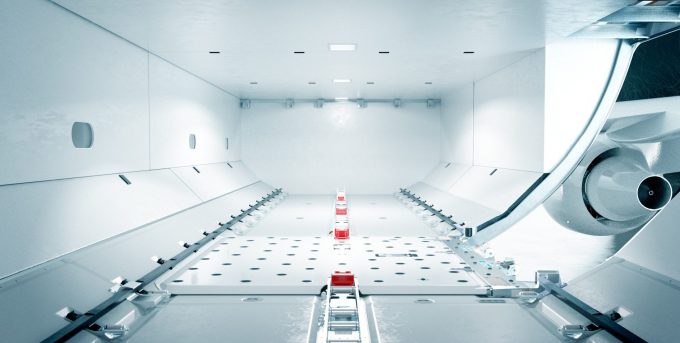Air cargo forwarders stick to spot rates – a long-term contract would be 'foolish'
Air cargo forwarders are sticking to using spot market rates, because “anything can come out ...

Lufthansa wants to take a more flexible approach to bellyhold cargo with its narrowbody Airbus fleet.
The German carrier is the launch customer for a new modular loading system for A320 and A231 aircraft unveiled by Telair International, a German technology firm.
The system comprises pre-assembled floor ...

Comment on this article